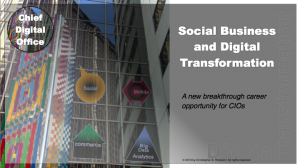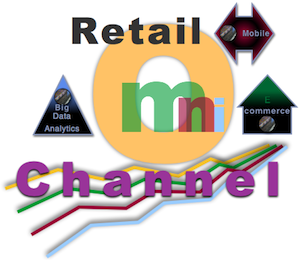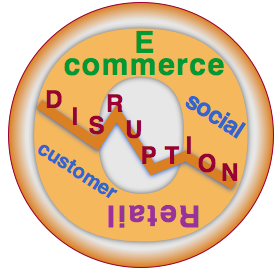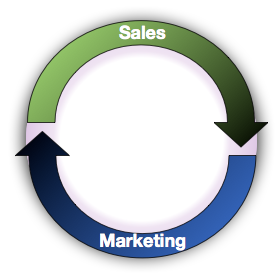
Africa [credit: Mapswire.com]
Africa is a nascent innovation powerhouse, and its leadership will become increasingly obvious during the coming decades, but the seeds are already visible as this post reveals: Africa’s population is exploding, and its young people are adopting tech alternatives to countries’ long-insufficient health, education, and financial infrastructure.
If you’ve been interested in international development for long, you have seen many prognostications about “Africa rising” over the years only to see them fade into oblivion. Predicting profound economic shifts is like predicting earthquakes; you study the driving forces and your algorithms crunch the data.
That isn’t stopping Helga Stegmann. She has led “user experience” agency Mantaray since 2006, and she gave a riveting talk last week in Chicago hosted by partner agency BoldInsight. In my experience, user experience folks rarely have their hands on the pulse of disruptive economic change, but the reason she is an exception reflects that Africa’s economic transformation is happening at the grassroots level (as with most revolutions), and her key orientation is user experience design, so researching users across rapidly evolving interfaces in devices. Follow along with my notes of her remarks […]
 Ethnographic research for product management shows how to apply ethnographic research of social media to managing the life cycle of products and services. Ethnographic research of social media can revolutionize product management because it’s a very efficient way to study people’s behavior and motivations in each part of the product life cycle. Unlike traditional product and ethnographic research methods, which are relatively slow, costly and qualitative, ethnographic research of social media combines qualitative richness with quantitative analysis. It’s faster and less costly, too. Ethnographic research for product management shows how to apply ethnographic research of social media to managing the life cycle of products and services. Ethnographic research of social media can revolutionize product management because it’s a very efficient way to study people’s behavior and motivations in each part of the product life cycle. Unlike traditional product and ethnographic research methods, which are relatively slow, costly and qualitative, ethnographic research of social media combines qualitative richness with quantitative analysis. It’s faster and less costly, too.
This post outlines the product management use case of ethnographic research of social media. For more on ethnographic research, see its executive summary.
[…]
 CIO Guide to CDOs and Digital Transformation summarizes a presentation I gave to TechLeaders Association, a Chicago-based CIO group. It will brief you on how digitally empowered B2C and B2B customers are forcing change on enterprises by demanding seamless interactions across digital and analog interfaces, the rise of the Chief Digital Officer and how CIOs can use this disruption to their advantage. Omni-channel will become the new normal in industries in which a leader provides the omni-channel experience and raises the bar. While explaining omni-channel, I asked the room how many had abandoned transactions with ecommerce or mobile sites because they were too difficult to use, and 40% raised their hands. When leaders field their omni-channel experiences, customers will reject laggards en masse. CIOs can use these developments to their advantage, and the CIO Guide to CDOs and Digital Transformation shows how. CIO Guide to CDOs and Digital Transformation summarizes a presentation I gave to TechLeaders Association, a Chicago-based CIO group. It will brief you on how digitally empowered B2C and B2B customers are forcing change on enterprises by demanding seamless interactions across digital and analog interfaces, the rise of the Chief Digital Officer and how CIOs can use this disruption to their advantage. Omni-channel will become the new normal in industries in which a leader provides the omni-channel experience and raises the bar. While explaining omni-channel, I asked the room how many had abandoned transactions with ecommerce or mobile sites because they were too difficult to use, and 40% raised their hands. When leaders field their omni-channel experiences, customers will reject laggards en masse. CIOs can use these developments to their advantage, and the CIO Guide to CDOs and Digital Transformation shows how.
[…]
 Omni-Channel Retail, Mobile and Big Data offers tantalizing glimpses into current and future omni-channel retail trends and technologies. I “sat down” with three thought leaders and a crowd of smart people on AllAnalytics’ real-time webcast, which featured real-time Q&A with the panelists afterward. You can watch it here. Omni-Channel Retail, Mobile and Big Data offers tantalizing glimpses into current and future omni-channel retail trends and technologies. I “sat down” with three thought leaders and a crowd of smart people on AllAnalytics’ real-time webcast, which featured real-time Q&A with the panelists afterward. You can watch it here.
Panelists Dr. Erik Brynjolfsson, Dr. Yu Jeffrey Hu and Dr. Mohammad Saifur Rahman collaborate on numerous projects, and they are intensely interested in retail transformation. They also referenced one of their recent papers, Competing in the Age of Omnichannel Retailing, and I have added some of its points here as well. The webcast was well moderated by AllAnaytics’ Noreen Seebacher and Beth Schultz.
Although it wasn’t discussed in depth, I observe that big data is especially poignant to retailers for two reasons: they have extremely rich internal, proprietary transaction data on customers (loyalty cards, credit cards, returns information, call center information, service information) and retail customers are the most free-wheeling online. Retail customers discuss their experiences in situations in which they use most types of products. This gives retailers priceless […]
Empowered customers and omni-channel commerce are mirrors of each other, and both are transforming “retail.”
 [UPDATED] Connected customers have the Internet in their pockets and use mobile and other devices in all stages of conceptualizing, considering, evaluating, buying and using purchased products and services. These customers want to interact with firms and brands in a seamless experience that features single sign-on as an entry point; they want the firm to respond using their individual data when that makes interacting more valuable. Omni-channel commerce refers to a collection of technologies, practices and strategies firms use to provide the personal individualized experience that connected customers expect. [UPDATED] Connected customers have the Internet in their pockets and use mobile and other devices in all stages of conceptualizing, considering, evaluating, buying and using purchased products and services. These customers want to interact with firms and brands in a seamless experience that features single sign-on as an entry point; they want the firm to respond using their individual data when that makes interacting more valuable. Omni-channel commerce refers to a collection of technologies, practices and strategies firms use to provide the personal individualized experience that connected customers expect.
IBM’s 2012 study of retail customers in eight mature economies (Australia, Canada, France, Italy, Japan, Spain, the UK and the USA) and seven growth economies (Argentina, Brazil, Chile, China, Colombia, Mexico and South Africa) lays bare that the retail “shopping” experience has shifted profoundly, although you wouldn’t know it by looking at most offline or online retailers’ presences. The paper, “Winning over the empowered consumer: Why trust matters,” is a call to […]
 U.S. healthcare transformation has been the subject of innumerable conferences, debates and programs for many years, and social business will play a large role. Reducing cost without sacrificing quality of care has become the common goal, so I believe social business will be a key lever because social technologies dramatically reduce the cost of collaboration. U.S. healthcare transformation has been the subject of innumerable conferences, debates and programs for many years, and social business will play a large role. Reducing cost without sacrificing quality of care has become the common goal, so I believe social business will be a key lever because social technologies dramatically reduce the cost of collaboration.
I have monitored healthcare reform for many years, and I sense that various factions, players and special interests are finally realizing that they must change. “Obamacare,” the protracted poor economy and a rapidly aging population are forcing many players out of their comfort zones.
I attended two events last week that provided interesting glimpses from behind the curtain, so I’ll share my notes here. One conference was co-sponsored by Baker & McKenzie and Deloitte, and the other was held at the University of Chicago Booth School of Business.
[…]
 Anonymity, Marketing and Predicting the Future shows that, although each culture has its own concepts of “anonymity” and “marketing,” anonymity will prove to have been a temporary phenomenon in most human cultures because communications technologies are counteracting it. Moreover, based on my studies of and experience with sociology, evolutionary psychology and technology, I observe that 20th century marketing is grounded in anonymity, so we can predict the future of marketing by exploring anonymity and its relationship to marketing. Anonymity, Marketing and Predicting the Future shows that, although each culture has its own concepts of “anonymity” and “marketing,” anonymity will prove to have been a temporary phenomenon in most human cultures because communications technologies are counteracting it. Moreover, based on my studies of and experience with sociology, evolutionary psychology and technology, I observe that 20th century marketing is grounded in anonymity, so we can predict the future of marketing by exploring anonymity and its relationship to marketing.
In brief, marketing’s influence is most poignant when anonymity is high and the marketing “target” is ignorant of the product/service and how to use it. In this scenario, the target is most open marketing’s influence. Read on to learn how marketing is related to anonymity, where anonymity is going and how marketing can transform to strengthen its influence.
Marketing organizations that do not transform will be sidelined because anonymity is dissipating fast.
[…]
 It is exciting to see widening recognition that brand survival depends on improving the lives of customers, not merely “pushing product” as they are accustomed to doing. In the latest example, Business Should Focus on Sociality, Not Social “Media”, Umair Haque offered a case for the end of social media and the disruption of many Industrial Economy structures, namely the social contract. It is exciting to see widening recognition that brand survival depends on improving the lives of customers, not merely “pushing product” as they are accustomed to doing. In the latest example, Business Should Focus on Sociality, Not Social “Media”, Umair Haque offered a case for the end of social media and the disruption of many Industrial Economy structures, namely the social contract.
As regular readers well know, I agree with Haque’s key thesis, that brands need to jettison their legacy focus on products/services in favor of dedicating themselves to helping users achieve outcomes while using their products. I have often written that humans and their organizations will have to adopt a more collaborative and responsible attitude and approach in general. However, I don’t agree with him that there’s only one way to do “sociality” as he implies by his assertion that brands have an “existential responsibility” to “the art of living.” Here I’ll explain the differences, which will help brand stewards understand the nuances of brands’ disruption.
[…]
Redrawing Your Map: Selling in the Knowledge Economy explains how the 21st century and digital social networks are changing client behavior, and sales, forever.

Having started in business in the 1980s in Chicago, I have had a front row seat to the waning of the Industrial Economy, which has created unprecedented human wealth through fabrication, distribution and scale in countless iterations. Its meltdown sets the context for a profound shift in all businesses, and it holds the key to understanding the new ways to bring new business to your firm. The Industrial Economy practice that is known today as “selling” is on life support in the ICU, and it won’t survive in most areas of the economy. Here I’ll explain how profoundly things have shifted and how you can use this understanding to revitalize how you bring new business to your firm. I’ll close with how social business empowers this disruption.
[…]
2012 B2B Marketing Social Business Opportunities presents rare career and business opportunities for B2B marketing pioneers

It happens every time. Executives in regulated and specialized B2B industries see disruptive technologies rise above the horizon, and they discard them out of hand because “that doesn’t apply to our business.” This attitude temporarily serves as a self-fulfilling prophesy, but it subsequently falls by the wayside.
Having been in the vanguard of ebusiness transformation during the late 1990s and early 2000s as both management consultant and marketing executive, I believe that 2012 will see serious adoption of social business by pioneering B2Bs.
In November 2012, I laid out the rationale in “2012 Will See B2B Early Adopters Move on Social Business,” so here I’ll describe this year’s specific opportunities for B2B marketers.
[…]
|
|


 Ethnographic research for product management shows how to apply ethnographic research of social media to managing the life cycle of products and services. Ethnographic research of social media can revolutionize product management because it’s a very efficient way to study people’s behavior and motivations in each part of the product life cycle. Unlike traditional product and ethnographic research methods, which are relatively slow, costly and qualitative, ethnographic research of social media combines qualitative richness with quantitative analysis. It’s faster and less costly, too.
Ethnographic research for product management shows how to apply ethnographic research of social media to managing the life cycle of products and services. Ethnographic research of social media can revolutionize product management because it’s a very efficient way to study people’s behavior and motivations in each part of the product life cycle. Unlike traditional product and ethnographic research methods, which are relatively slow, costly and qualitative, ethnographic research of social media combines qualitative richness with quantitative analysis. It’s faster and less costly, too. CIO Guide to CDOs and Digital Transformation summarizes a presentation I gave to TechLeaders Association, a Chicago-based CIO group. It will brief you on how digitally empowered B2C and B2B customers are forcing change on enterprises by demanding seamless interactions across digital and analog interfaces, the rise of the Chief Digital Officer and how CIOs can use this disruption to their advantage. Omni-channel will become the new normal in industries in which a leader provides the omni-channel experience and raises the bar. While explaining omni-channel, I asked the room how many had abandoned transactions with ecommerce or mobile sites because they were too difficult to use, and 40% raised their hands. When leaders field their omni-channel experiences, customers will reject laggards en masse. CIOs can use these developments to their advantage, and the CIO Guide to CDOs and Digital Transformation shows how.
CIO Guide to CDOs and Digital Transformation summarizes a presentation I gave to TechLeaders Association, a Chicago-based CIO group. It will brief you on how digitally empowered B2C and B2B customers are forcing change on enterprises by demanding seamless interactions across digital and analog interfaces, the rise of the Chief Digital Officer and how CIOs can use this disruption to their advantage. Omni-channel will become the new normal in industries in which a leader provides the omni-channel experience and raises the bar. While explaining omni-channel, I asked the room how many had abandoned transactions with ecommerce or mobile sites because they were too difficult to use, and 40% raised their hands. When leaders field their omni-channel experiences, customers will reject laggards en masse. CIOs can use these developments to their advantage, and the CIO Guide to CDOs and Digital Transformation shows how. Omni-Channel Retail, Mobile and Big Data offers tantalizing glimpses into current and future omni-channel retail trends and technologies. I “sat down” with three thought leaders and a crowd of smart people on AllAnalytics’ real-time webcast, which featured real-time Q&A with the panelists afterward. You can watch it here.
Omni-Channel Retail, Mobile and Big Data offers tantalizing glimpses into current and future omni-channel retail trends and technologies. I “sat down” with three thought leaders and a crowd of smart people on AllAnalytics’ real-time webcast, which featured real-time Q&A with the panelists afterward. You can watch it here. [UPDATED] Connected customers have the Internet in their pockets and use mobile and other devices in all stages of conceptualizing, considering, evaluating, buying and using purchased products and services. These customers want to interact with firms and brands in a seamless experience that features single sign-on as an entry point; they want the firm to respond using their individual data when that makes interacting more valuable. Omni-channel commerce refers to a collection of technologies, practices and strategies firms use to provide the personal individualized experience that connected customers expect.
[UPDATED] Connected customers have the Internet in their pockets and use mobile and other devices in all stages of conceptualizing, considering, evaluating, buying and using purchased products and services. These customers want to interact with firms and brands in a seamless experience that features single sign-on as an entry point; they want the firm to respond using their individual data when that makes interacting more valuable. Omni-channel commerce refers to a collection of technologies, practices and strategies firms use to provide the personal individualized experience that connected customers expect. U.S. healthcare transformation has been the subject of innumerable conferences, debates and programs for many years, and social business will play a large role. Reducing cost without sacrificing quality of care has become the common goal, so I believe social business will be a key lever because social technologies dramatically reduce the cost of collaboration.
U.S. healthcare transformation has been the subject of innumerable conferences, debates and programs for many years, and social business will play a large role. Reducing cost without sacrificing quality of care has become the common goal, so I believe social business will be a key lever because social technologies dramatically reduce the cost of collaboration. Anonymity, Marketing and Predicting the Future shows that, although each culture has its own concepts of “anonymity” and “marketing,” anonymity will prove to have been a temporary phenomenon in most human cultures because communications technologies are counteracting it. Moreover, based on my studies of and experience with sociology, evolutionary psychology and technology, I observe that 20th century marketing is grounded in anonymity, so we can predict the future of marketing by exploring anonymity and its relationship to marketing.
Anonymity, Marketing and Predicting the Future shows that, although each culture has its own concepts of “anonymity” and “marketing,” anonymity will prove to have been a temporary phenomenon in most human cultures because communications technologies are counteracting it. Moreover, based on my studies of and experience with sociology, evolutionary psychology and technology, I observe that 20th century marketing is grounded in anonymity, so we can predict the future of marketing by exploring anonymity and its relationship to marketing. It is exciting to see widening recognition that brand survival depends on improving the lives of customers, not merely “pushing product” as they are accustomed to doing. In the latest example, Business Should Focus on Sociality, Not Social “Media”, Umair Haque offered a case for the end of social media and the disruption of many Industrial Economy structures, namely the social contract.
It is exciting to see widening recognition that brand survival depends on improving the lives of customers, not merely “pushing product” as they are accustomed to doing. In the latest example, Business Should Focus on Sociality, Not Social “Media”, Umair Haque offered a case for the end of social media and the disruption of many Industrial Economy structures, namely the social contract.
